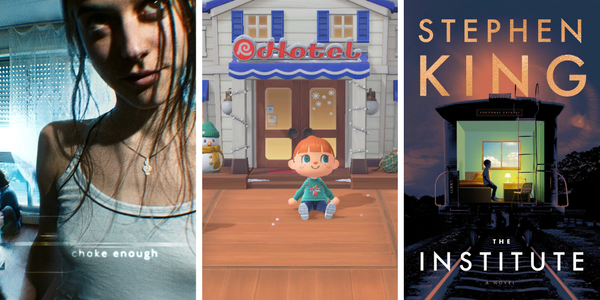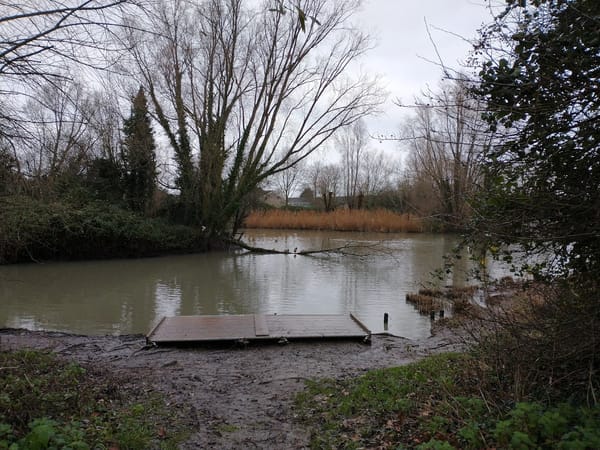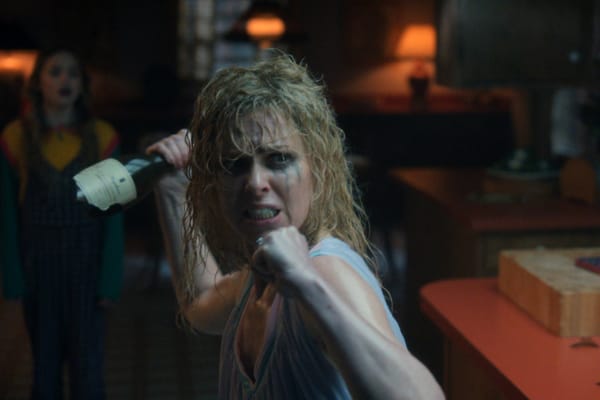Hey, good-lookin'
on expectations and entitlement
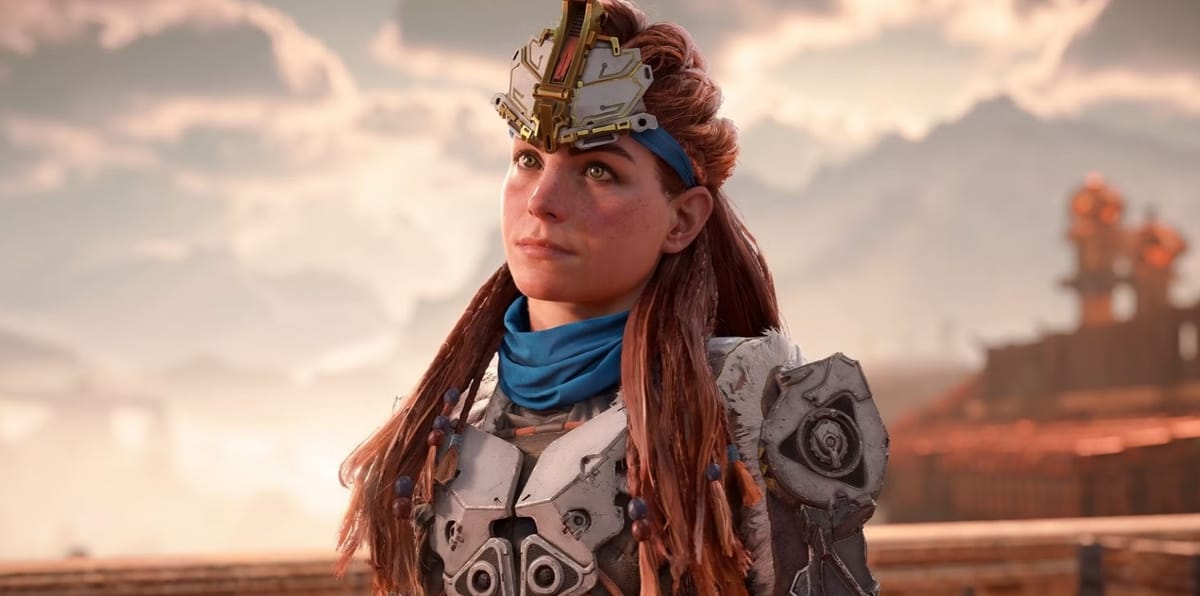
Discourse is a tightrope on which I balance. How much of my time and headspace am I willing to give it? How much of my health - mental, and possibly physical, who knows what kind of pressure we put on our bodies as we read tweet after tweet of the most contrarian shit imaginable - am I willing to sacrifice for this? Is speaking up worth the cost of amplifying these voices?
I've accepted that I am probably addicted to social media to a certain extent, and it's not always a bad thing. I've met friends here. I've found work opportunities. I've learned about the world outside of my own bubble. Discourse is the payment for companionship, maybe. I'm self-employed and I work alone, and so somewhere along the line, I've accepted the cost.
The discourse over the past few months has become increasingly hostile towards women. I've been trying to figure out how much, if anything, I want to say about it. Sometimes, you'll see some kind of online outrage that is so ridiculous it genuinely makes you laugh out loud, and that was me, last week, watching people rage about how unattractive female video game characters are becoming.
We've done this to death, I know. Other people have covered it way more eloquently than I can. It's beauty pageant Aloy all over again. But despite the stupidity of it all, it feels kind of insidious, a pathetic outer layer of something more sinister.

Another tightrope: the male gaze.
The term comes from Laura Mulvey's 1973 essay Visual Pleasure and Narrative Cinema. It's interesting in a Freudian, phallus-heavy sort of way. 'The male gaze projects its fantasy onto the female figure', Mulvey says. It explores the ornamental nature of femininity as depicted in cinema; the 'to-be-looked-at-ness', as Mulvey calls it.
I think of the role models of my youth. I was an adolescent in the post-Spice-Girls era, which was equal parts liberating and problematic (hello, Charlie's Angels). In the thirty years since Mulvey's essay, the world had moved on slightly, but not completely.
The Lord of the Rings trilogy was my constant companion in my teen years. I think of the female characters. I think of Eowyn's 'I am no man' (which I just found out comes from the immensely cool line 'But no living man am I! You look upon a woman.') I cannot tell you how much I loved that. I was a hardcore Buffy fan; strong women were my exact cup of tea, despite being a quiet, mousy sort of girl myself.
There's no escaping the fact that these women were beautiful. Arwen is stunning, obviously; she's so ethereally beautiful in a kind of tremblingly vulnerable sort of way that I used to rewind her scenes just to look at her. But Eowyn is gorgeous even when she's busy stabbing the Witch-King in the face. You know? They look fantastic. Even when Buffy's saving the world, she's doing it in a prom dress half of the time. And I liked that kind of thing. I still do, actually. Strength and beauty are not mutually exclusive. It was just very difficult, in all media, to see women who looked even remotely normal.
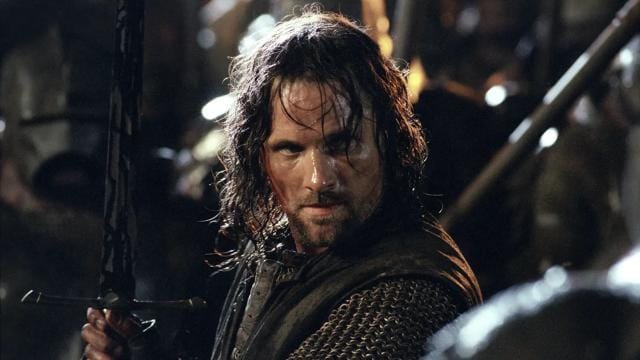
The tightrope part comes in because I am, in many ways, a product of the landscape I grew up in. While the expectation to be beautiful isn't exactly the main concern of my life right now, it has had an imprint, as it has for most women I know. Women in the early '00s were harshly judged for their looks, and this was especially true for anyone above a size 8. We all know about the infamous circled cellulite in magazines. Celebrity worship really reached a fever pitch back then. Women were expected to look good first. Only then could we talk about their achievements. And for most of my twenties I let that idea live in my head without question. I let it guide my decision-making, I let it make me feel inferior, and I never thought to just reject that pressure, because it was so deeply rooted in me.
Ultimately, I don't actually have an issue with women being beautiful in video games, or music videos, or excellent fantasy trilogies. It's fine. I also like beautiful women. I don't have a problem with people thinking I'm nice to look at, if they want to. I just want to do it on my terms. If I feel good and I want to share it with you, I'll do it. That's my right. It's the demanding of beauty that winds me up, I think. The expectation.
Going back to gaming. That same expectation of women being beautiful trickled over from other forms of media into video games, and that's why we have grown men having a tantrum because Lara Croft has a slightly more angular jaw than they would like. It's telling, because I don't see outraged three-hour YouTube videos called Guys In Video Games Just Aren't Hot Enough These Days Because of Political Correctness or Whatever. There's something very online-male about these conversations.
The immediate expectation is that women will look good (to men) as a first priority. They might be the most intellectually fascinating or physically strong or impressively capable characters, but these men literally do not give a shit unless they look good first. They're ready to throw a whole character in the bin because they didn't like her jawline in a trailer.
It feels reductive, because it is. It reduces women to what these men find most useful about us, and that's whether or not they could happily imagine fucking us or not. I guess it does go back to the male gaze: that constant pressure to be ornamental, no matter what. Because men, for some reason, should have the right to look at women they find attractive at all times, and we should bend over backwards to provide that for them.

The last tightrope: there is part of me that is tempted to feel sorry for these people. (Well. Some of them.) I know that sympathy is sometimes mistaken for weakness. Maybe it is weak, I don't know. Sometimes my imagination gets the better of me, and I wonder what kind of lives these people have. I wonder what makes them this way. And the naive part of me wants there to be a reason for it; not a reason that magically makes their behaviour acceptable, but something I can connect to, a kind of soft underbelly of humanity that could be healed. I don't like to think that people are just absolute bastards for no reason, but I accept that I might be stupid for thinking that.
Some of the incel (or at least, incel-adjacent) rhetoric is driven by loneliness, whether this is accidental loneliness by random circumstance or self-imposed loneliness driven by internet extremism. Interestingly, part of the Lib Dem manifesto was to install a Minister for Loneliness, and I think they're onto something there. It's obviously a huge problem.
For women though, male loneliness (which, by the way, is not our responsibility to solve) combined with a strange sense of entitlement that seems to pass down through the generations like a terrible disease, can be fatal. Turning down a man on the brink can be a life-or-death game. Take this guy:
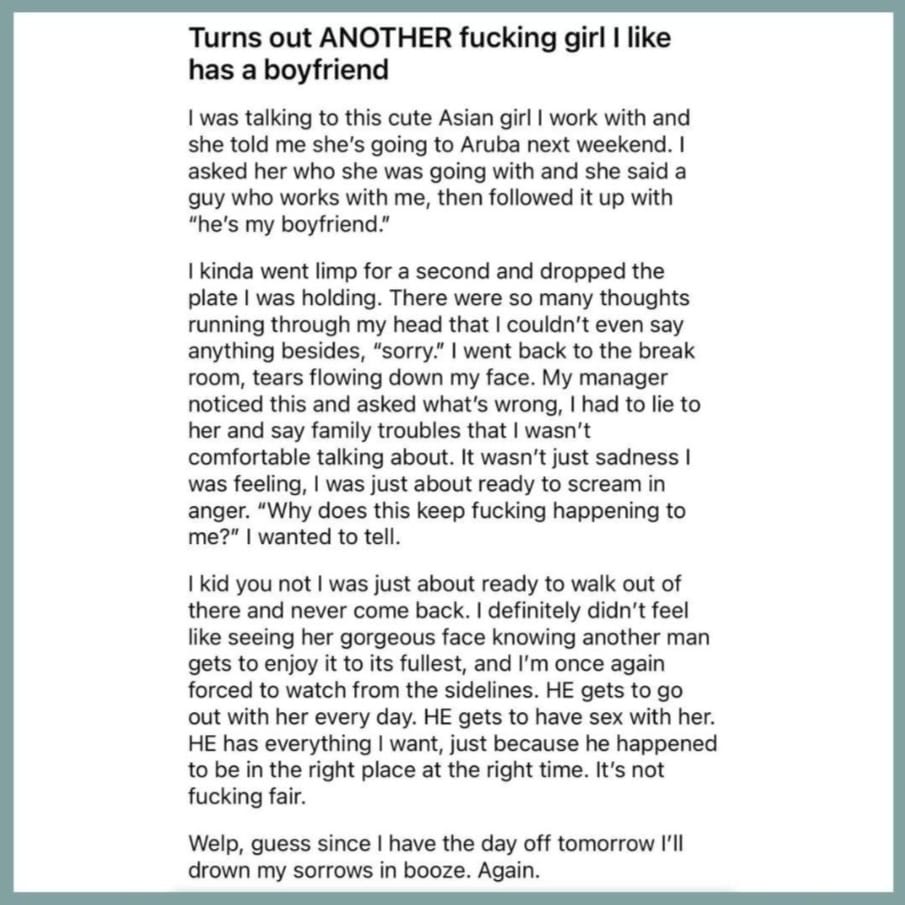
This kind of thing scares the shit out of me because I know, from experience, where this road leads. The entitlement, the ownership. Not once does he consider whether she ever wanted him. She is an empty vessel, devoid of her own agency: 'HE has everything I want, just because he happened to be in the right place at the right time.' It was always about his needs first. Somewhere along the line, he's absorbed the idea that this is a normal way to react to rejection.
It never ends well for a woman, you know? It makes life hostile for us, because as women, we don't actually know whether this guy is just a bit emotionally immature, or if he's on the brink of violence. The notion that men are owed a girlfriend is tied to the idea that women are ornaments for the gaze, and use, of men, and that is tied to the idea that we are fundamentally less human, somehow, and that we don't deserve full autonomy or freedoms, freedoms that are being attacked at every given opportunity at the moment. It's all part of one big, awful network of misogyny that harms everyone. It doesn't make men happier. And it can, and does, lead to the worst possible outcome for women.
I'm sure you don't need me to tell you about the horrific news story that developed this week. Three women murdered by a scorned ex with a crossbow. Three women's lives ended and their family destroyed, because a man couldn't cope with being told 'no'. I had a panic attack last night after reading about it. Things will crop up occasionally that remind me how close I came to this, how all the beauty and joy and love that have unfolded since then might not have happened at all, because I had the nerve to tell a guy 'no'. What protected me from that? Luck? Circumstances? The fact that he was a few degrees less entitled than another man might have been? I wish I could say, hey, that's put things into perspective for me, I'll try to be more grateful. It hasn't. It's just retriggered old scars that, no matter how much work I put in, won't ever completely go away.
Stupid discourse, yeah. It is. A lot of it makes me roll my eyes. These silly people, and their silly obsessions with jawlines. It's funny. It's nonsense. With horrible, dark, menacing layers underneath it all. When we talk about these reactionary gamers and their need for hot women in video games, we're also talking about something more sinister; these online-only opinions have a tendency to leak out into reality, and honestly? It's usually women who get the shit end of the stick because of it. I don't want to lose my compassion or humanity for anyone, male, female, or in between, but god, someone give us a break.

Phew. I'm not sure if I feel better or worse for getting all that out. I'm still trying to untangle how I feel about all this. Some things are worth taking a brief sanity hit to talk about.
I'm not sure what the solution is. I sort of think it will die a death eventually; this kind of thing tends to burn itself out, but not without some collateral damage in the meantime. I like to think that eventually, people's real lives interrupt in some way, or people mature a bit, and realise that the dark online community they are pouring their souls into is actually poisoning them, and then the numbers thin out.
I think the general day-to-day shitposting probably isn't worth responding to or amplifying. That includes retweeting; some of these people make actual money from this in Elon's incredible playground for right-wing ragebaiters and porn bots.
The movement, however, is worth keeping an eye on. The general anti-female sentiment around women and their role as handmaidens is worth being concerned about. There are bigger things at play here.
Anyway, the GG 2.0 crew will argue that any games with a hint of diversity are automatically shit, but that's an intellectually dishonest argument: it's 2024! We can have both! We can have games that are both fun to play and feature diverse characters. Shocking, but true. On top of that, you can still have games with latex, fluttery eyelashes, and jiggle physics. Did you know there are over 73,000 games on Steam? Go nuts. There's something on there for you, I promise you.
And the sentimental side of me really likes the thought that we can, in some small way, drown it all out. You know? We can amplify the work of people who push for better representation in gaming. We can highlight under-represented voices. We can celebrate every step we take towards a more inclusive community. We can promote games that show both respect for all humans and a deep love of the medium itself. So much is possible now. There is so much potential. Let's not let people drag us back to the dark ages. Please.



